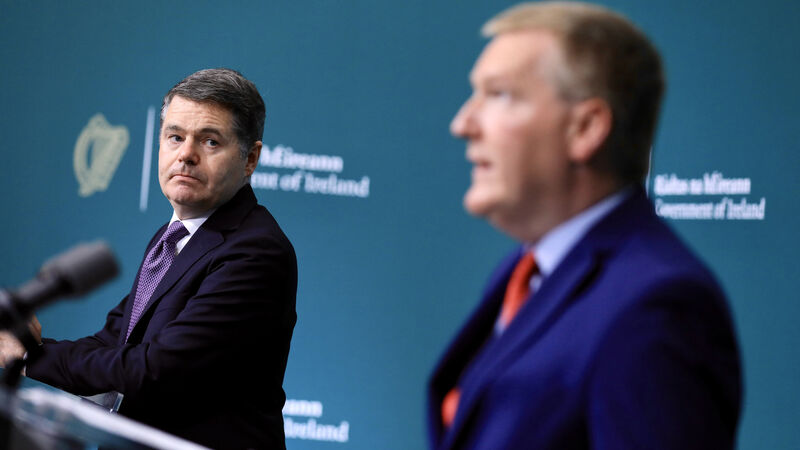Oliver Mangan: Spending now on Covid-19 will pay dividends

Minister for Finance Paschal Donohoe and Minister for Public Expenditure and Reform Michael McGrath. What fiscal policy needs to do in the near-term is to limit the scarring effects of the recession that could hamper recovery. File photo
An eerie calm has descended on financial markets, even though major risks to economic activity continue to swirl about.
The number of new Covid-19 cases continues to rise rapidly, especially in Europe, with countries re-imposing restrictions to try and rein in the second wave of the virus.











